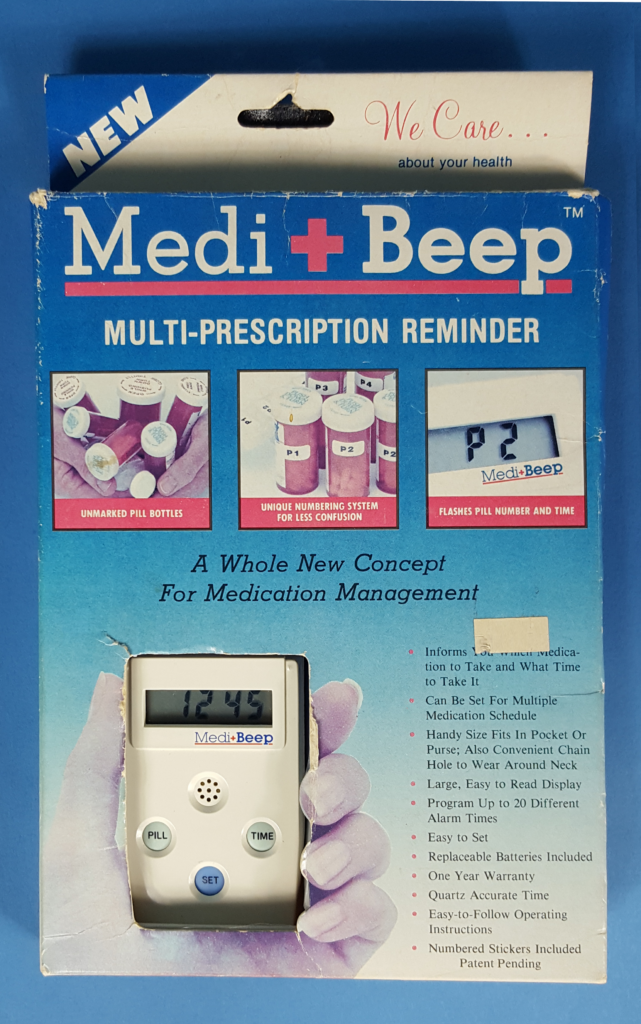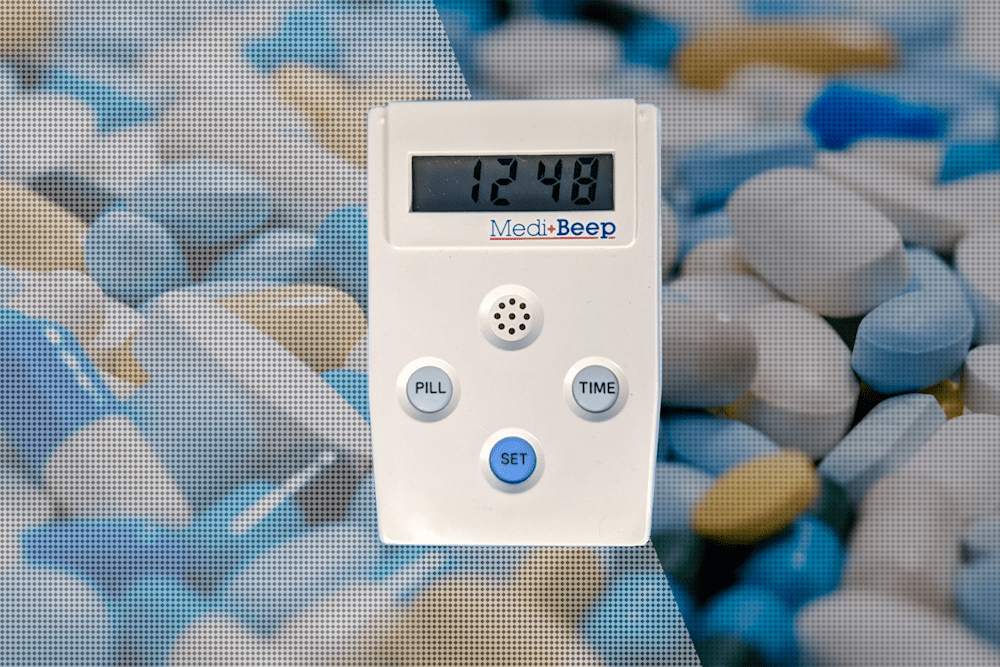Medi+Beep Wants You to Take Your Medicine
Electronic pill timer was an original pocket nurse
There are apps for pill timers today. But 30 years ago, Medi+Beep a start-up company decided to produce a electronic medication reminder that could remind you when to take your medicine and which medicine to take. The design had to ensure compliance with a physician’s treatment program, keep track of up to 20 different dosage times per day, and remind the owner of other important, routinely scheduled activities — and do it with a friendly beep.
For a good reason. Missing pills too often can seriously affect a person’s health or lead to negative side effects, but keeping track of it all can be an unpleasant hassle. It’s worth it to have a nurse in your pocket whether for yourself, your children or while looking after elderly parents.
Enter the Medi+Beep (U.S. Patent #5,097,429).
The start-up company came to us with several specifications. For one, the Medi+Beep had to be easily manufactured in the United States using robotic assembly equipment to eliminate high labor costs.

The design also had to be easy enough for elderly patients to program without decreasing the number of features that could be included.
A demonstration unit was initially required to raise funds for the production of the product. The design also required masking a custom part, and it had to be comprehensively tested by the targeted end users before acquiring expensive tooling.
Solution
MTSI developed a CMOS 4-bit microcomputer with built-in display drivers for an LCD display. Program development was straightforward and done on a personal computer. An IBM PC-based program was developed to then prove the new concept of using just a “Pill,” “Time,” and “Set” button for all functions.
The button-press sequences were proven before the final program was developed.
The PC was then used to drive an in-circuit emulator, and 4-bit assembly language code was developed and tested exhaustively using the emulator and the LCD display.
The system was then shown to retailers and doctors. After receiving feedback, minor changes were made to the code based on their inputs. The code was then released for masking into the final, low-cost part. One feature was the ability to set four different medication schedules numbered P1, P2, P3 and P4 — referring to different clusters of pills that a patient might take in the morning or the evening or somewhere in between. (MediBeep also came with reusable stickers for labeling the medication with its designation in the device).
Then you could just keep the Medi+Beep with you. And then it beeped — for around two minutes at the set times, and then periodically every 30 minutes after until you pressed the button to tell it to stop.
Impact
Medi+Beep entered volume production at around 10,000 units. The cost of the unit, including the case and batteries, sold in stores for under $10 per Medi+Beep — reminding their owners to take their pills, or at least not swallow them all at once.

Robert Beckhusen
Robert Beckhusen is a case studies and content marketing editor for Micro Technology Services.


